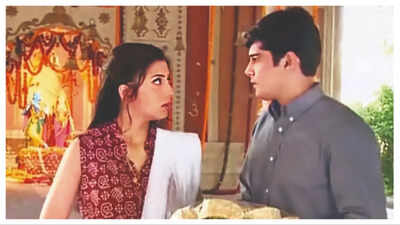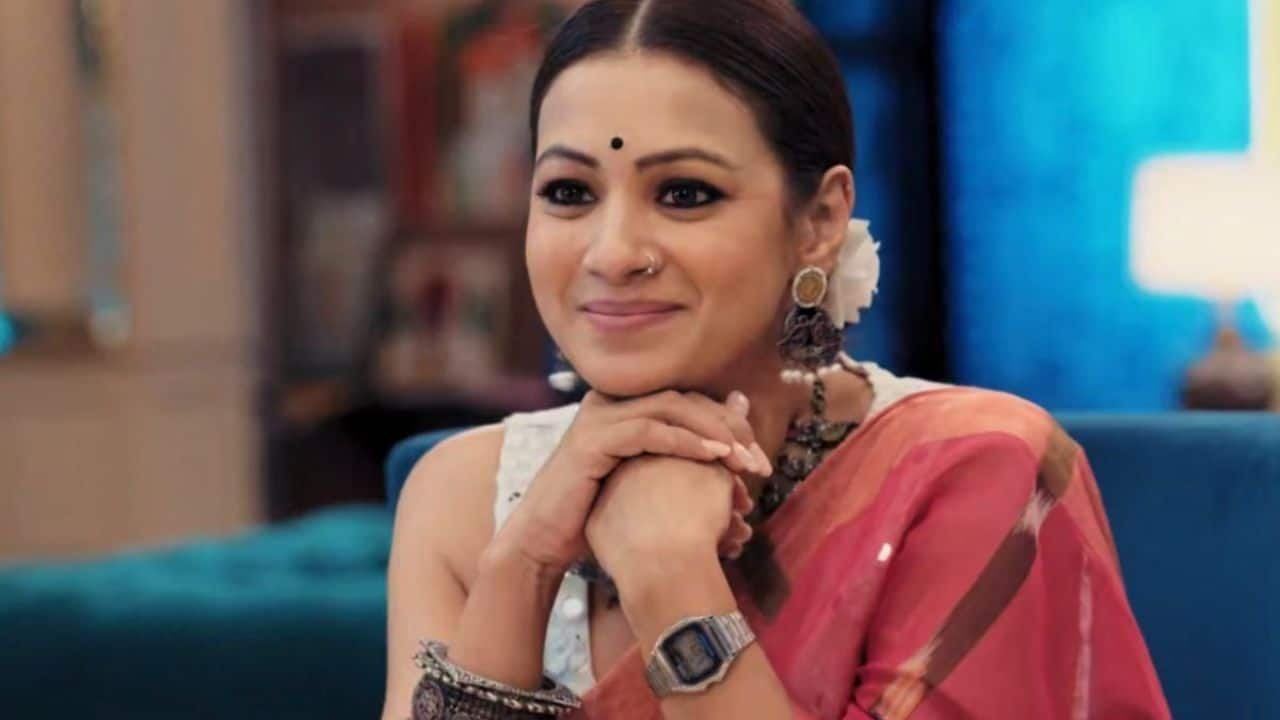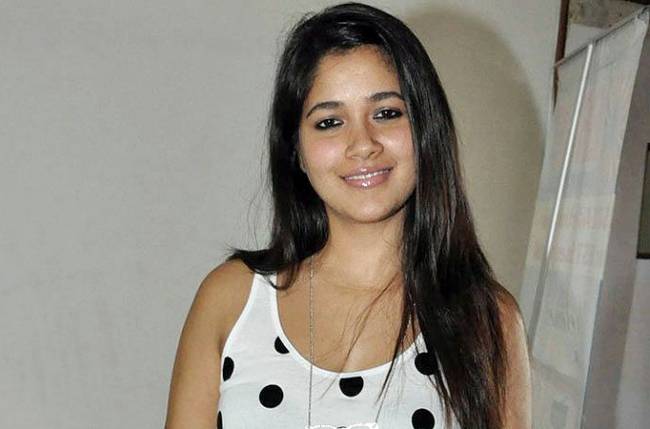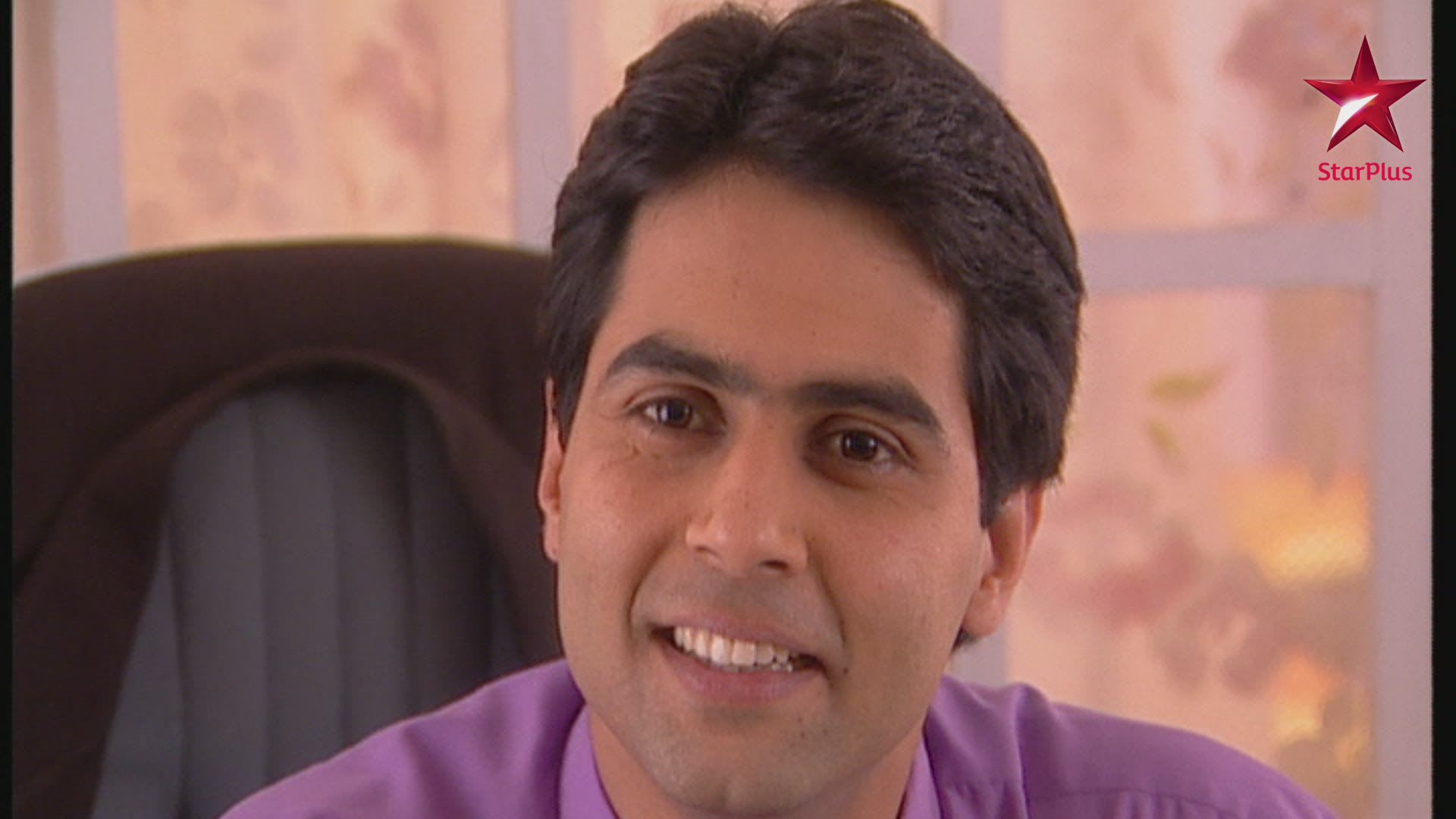Chapter 1 — College Beginnings
The banyan tree outside St. Xavier’s wore fairy lights like constellations someone had tugged down from the night. Crisp banners for YAARON KI DOSTI FEST strained in the sea breeze, and Tulsi stood on a wobbly stool, measuring the last corner with that familiar squint which said: “perfection is a moral duty.”
“Sixth time,” Mihir called from below, palms open, pretending to spot her like a gymnast. “At this point you’re not hanging a banner—you’re aligning the universe.”

Tulsi glanced down, took an extra second just to annoy him, then smoothed the fabric flat. “The universe asked for my help. Also, your jokes are crooked.”
He passed up the tape, grin easy, hair rebellious, sleeves rolled to the kind of forearms that won debates. Someone at the sound desk tested the speakers and a bright guitar riff spilled across the lawn. Both start arguing by accusing each other of cheating in a friendly basketball match.
Song plays.
Tulsi points out Mihir
Yeh kaisa ladka hai
Mihir points out Tulsi
Yeh kaisi ladki hai
Iska main kya karoon
Isse main kya kahoon
Yeh ladta hai
akadti hai
Jhagadta hai
bigadti hai
Deewana hai
deewani hai
But he is your best friend yaar
But she is your best friend yaar
Both Mihir and Tulsi fight but accept each other as best friends.

All students dance with Mihir and Tulsi.
Haye haye re haye ye ladka
Haye haye re haye
Karta nadaaniyaan kyun,
poocho toh haaye
Haye haye re haye ye ladka
Haye haye re haye
Karta nadaaniyaan kyun,
poocho toh haaye
Kabhi ye hamse ladta hai
Kabhi jhagadta hai
Koi paas iske na aana

Mihir, Tulsi and the students continue to dance.
Ye ladka hai deewana, hai deewana
(deewana..deewana..deewana..)
Ye ladka hai deewana, hai deewana
(deewana..deewana..deewana..)
Haye haye re haye ye ladki
Haye haye re haye
Karti nadaaniyaan kyun,
poocho toh haaye
Kabhi ye hamse ladti hai
Kabhi akadti hai
Karo door se chhed khaani
Ye ladki hai deewani, hai deewani
(deewani..deewani..deewani..)
Ye ladki hai deewani, hai deewani
(deewani..deewani..deewani..)
Mihir dances.j5 for

Iski baatein
Yehi jaane
Koi bhi toh jaane na…
Aisi waisi
Kais hai yeh
Koi pehchane na
Toh bhaago, o yaaro
Kar na de shaitani
Ye ladki hai deewani, hai deewani
(deewani..deewani..deewani..)
Ye ladka hai deewana, hai deewana
(deewana..deewana..deewana..)

Aate jaate
Chhede humko
Ye maane na yeh kehna
Dekho dekho
Pagal hai ye
Haan bach ke zara rehna
Ye asia hai phir bhi
Apna isko mana
Ye ladka hai deewana, hai deewana
(deewana..deewana..deewana..)
Ye ladki hai deewani, hai deewani
(deewani..deewani..deewani..)

Haye haye re haye ye ladka
Haye haye re haye
Karta nadaaniyaan kyun,
poocho toh haaye
Kabhi ye hamse ladti hai
Kabhi akadti hai
Karo door se chhed khaani
Ye ladki hai deewani, hai deewani
(deewani..deewani..deewani..)
Ye ladka hai deewana, hai deewana
(deewana..deewana..deewana..)
The melody hopped from bench to bench, students automatically falling into step, the way a city falls into monsoon.
Mihir started humming, obviously, because restraint was not his spiritual gift. He did a mock twirl beneath the stool.
“Don’t you dare,” Tulsi warned, suppressing a laugh. “If you break into choreography, I’ll move this fest to the basement.”

“Basement has better acoustics,” he said, ducking as she waggled the roll of tape like a gavel.
They had learned this rhythm freshman year: her precision and his mischief, her compass and his map, two magnets insisting they were just paper clips.
The rehearsal horn blared from the auditorium and swallowed the lawn’s chatter. Tulsi hopped down and checked her clipboard—light cues, volunteer rotations, snack counters—then flicked her wrist in a semicircle that meant “let’s go.” Mihir fell into step beside her as the chorus of “Ladki Hai Deewani” chased them down the corridor, all claps and tease, the soundtrack of a campus that believed in possibility.
Backstage smelled like dust and adrenaline. Dancers stretched, a guitarist argued with a capo, and a first-year sobbed into a makeup sponge because her eyeliner had betrayed her. Tulsi moved through the chaos like good weather—calming, inevitable.
“You,” she said to Mihir, stabbing her pen toward the stage, “sound check in two minutes. And no dedications tonight. Last year, you dedicated a ghazal to ‘cafeteria samosas.’ I’m still recovering.”
“Those samosas got me through midterms. They deserved the moment.” He snagged a mic, tapped it twice—“Check, check, recognizable voice reporting for duty.”
Tulsi aimed a look that would have melted steel. “Recognizable like a fire alarm.”

He flashed a palm-to-heart salute. “I promise to only sing in case of extreme charm emergency.”
From the side door, a new voice: “Excuse me? Is this the organizing committee?”
They turned. She stood framed by the corridor light, suitcase in one hand, confidence in the other. Powder-blue kurta, camera strap slung across her shoulder, eyes that weren’t shy but weren’t loud either. Noina. The name fit like a melody you realize you’ve always known.
“I’m transferring from Delhi,” she said, stepping in. “Media Studies. They told me to find the fest office, but I found… this.” She gestured at the backstage chaos with an amused smile.
Mihir popped off the stage stairs, half-bow, half-showman. “Welcome to the circus. I’m Mihir. This is Tulsi—the Supreme Court of Stagecraft.”
Tulsi’s smile arrived slower but stayed longer. “If you can handle color palettes, crowd flow, or people who panic when fairy lights tangle, you’re hired.”

Noina glanced at the light board, the taped floor marks, the fraying to-do list clipped to Tulsi’s clipboard. “I plan better than I dance,” she said, and it sounded like a vow rather than an apology. “Let me map your entries and exits so the energy doesn’t dip.”
Tulsi held out a lanyard. “Welcome home.”
Onstage, the band cracked into a trial run. The drummer counted off. The guitarist hit that gleaming hook again. “Ladki Hai Deewani” burst full-bloom from the speakers and, as if the song itself were impatient, the curtain wagged with its own small applause.
“Go,” Tulsi said to Mihir, nudging him. “Prove you can hit a note on purpose.”

He sauntered out with the guitar, caught the first spotlight like a friend, and the room tilted subtly toward him. The crowd of volunteers erupted—half cheers, half catcalls. He leaned into the mic.
“This one’s for the organizing committee,” he said. “Especially the one who thinks joy needs a permit.”
Tulsi folded her arms, but her foot betrayed her with a quiet tap.
He strummed; the band kicked; “Yeh Ladka Hai Deewana” slid in as a playful counter-melody, almost like the song was teasing him back. He sang the first verse with that grin that should have been considered a minor public hazard. On the line “jo pyaar mein deewana hai,” his gaze drifted to the wing for half a heartbeat—careful, clumsy, clear. Tulsi looked away, which is to say: she stayed exactly where she’d always been.
Noina watched both of them, eyes sharpening the way a photographer’s do when the frame clicks together. She didn’t sigh; she didn’t ache. She just… understood something about gravity.
The afternoon ran itself into evening. By the time the sun angled low enough to gild the quadrangle, the college looked dressed for a memory. Noina and Tulsi stood over a fabric swatch debate: marigold versus slate.
“Marigold lifts faces in photos,” Tulsi argued, holding the strip under the fairy lights.
“Slate calms the riot of colors,” Noina countered, placing it beside the marigold. “Let’s give the eyes a resting place.”
They grinned at each other—the kind of mutual respect that arrives on first cooperation and never leaves. “Half and half,” Tulsi decreed, dividing the garland lengths like a judge who enjoyed being fair.
Mihir strolled up with three paper cups, each haloed with chai steam. “For the benevolent dictators,” he announced, handing them out. The “Ladki Hai Deewani – instrumental” looped from a portable speaker as two first-years practiced a goofy hook step, tripping over their own delight.
“You know,” Noina said, watching the dancers, “some friendships sound like this song. Loud, fast, impossible to ignore.”
“Some people mishear it,” Tulsi replied, eyes skating past Mihir’s shoulder toward the banyan. “They think fast means forever.”
“Disagree,” Mihir said, sip-smiling. “Fast means fun. Forever needs better brakes.”
They clinked cups to that.
Rain arrived the way deadlines do: earlier than promised. The lawn squealed and scattered, umbrellas popping open like inkblots. The three took shelter under the auditorium awning, shoulder to shoulder in a line that felt like a sentence finally finding its verb.
The corridor jukebox fuzzed to life, and a soft “Koi Mil Gaya (slow instrumental)” threaded through the storm. It was background, only background, but the melody carried a corridor of its own—one that led straight through the ribcage and out into the rain.
“Campus will flood,” Tulsi said, watching puddles join hands. “We need the runners to move the instruments inside.”
“I’ll do it,” Mihir offered, already stepping into the wet.
“You’ll catch a cold,” she snapped, then softer, “and make me fill your sick-leave forms.”

He blinked at the softness, smirked at the snap, and held out his umbrella anyway. “Share?”
“No.” She pushed it back. “Chivalry ruins logistics.”
He laughed, and it shook something loose between them, something fluttery and named only by tempo. “Ladki Hai Deewani” flickered back over the speakers—a bright reprise, rain-damp but undimmed. Noina watched the umbrella negotiations with a gentle, amused heart, as if she’d been handed a map labeled with old landmarks and one blinking arrow: You are here.
Night stitched itself across the campus, hemmed by fairy lights. The fest committee finally took a breath together on the theatre steps, soaked and giddy, the kind of tired that tastes like sugar.
“Your stage cues fixed the energy dips,” Tulsi said to Noina, scribbling a tick on her clipboard. “No audience lag.”
Noina shrugged, pleased. “People like to be led. Just not pushed.”
Mihir stretched his long arms until his shoulders popped and then fell backward onto the steps, sprawled toward the stars. “We should freeze this,” he said to no one and both of them. “The exact frequency of this feeling.”
Tulsi sat beside him, close enough that their elbows pretended to be strangers. “We’d break it if we tried.”

“Maybe,” he said, turning his face, not quite looking. “Or maybe it’s unbreakable.”
Across the street, a hostel window flared with laughter. Somewhere, far off, a scooter backfired and became, for one silly second, a drum. The air held that familiar predawn promise even though it was early night: you will remember this.
Tulsi checked her watch. “We still have the alumni charity event to coordinate next month,” she said, business returning like a tide. “If we pull it off, the proceeds will seed an after-school program.”
“Ambitious,” Mihir murmured, impressed. “You frighten me, Ms. NGO-in-the-making.”
“Good.” She stood, collecting her clipboard, and offered him a hand. “Fear improves attendance.”

He took it. For a heartbeat longer than necessary.
Noina rose too, shouldering her camera, catching the way their fingers released each other like a promise wrapped in denial. She didn’t narrate it; she didn’t need to. The shutter clicked—a soft syllable of truth—capturing two friends and a song still in the first chorus.
“Tomorrow,” Tulsi said, tucking a strand of hair behind her ear, “we finalize the basketball exhibition match for the fest. Don’t be late, Mihir.”
“Me? Late?” He clutched his chest in mock injury. “I was born on time.”
“Your maturity was delayed in transit,” she shot back, already walking.
He matched her stride. Noina trailed, smiling, the three of them moving down the corridor as “Ladki Hai Deewani” rose once more—lighter now, like shoes squeaking on polished wood, like laughter choosing a direction.
The song would change next time—older, subtler; the court would echo and so would a heart. But that was tomorrow’s chapter.
Tonight belonged to beginnings.
Edited by kavitha_r - 3 months ago














































